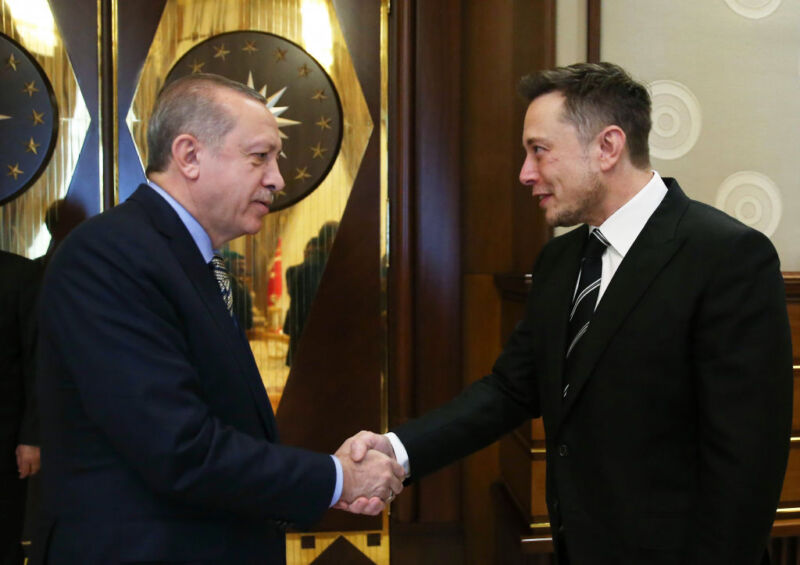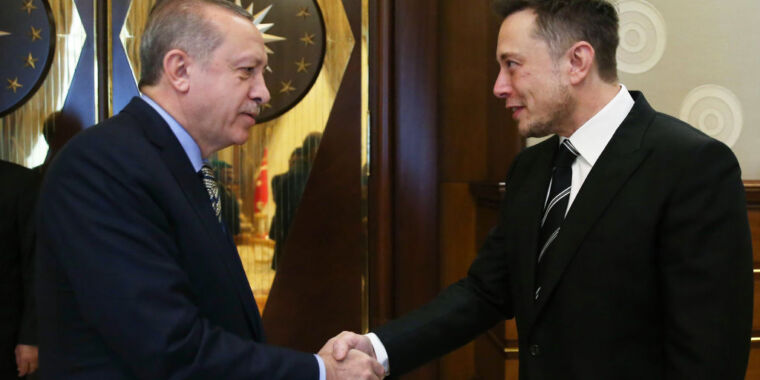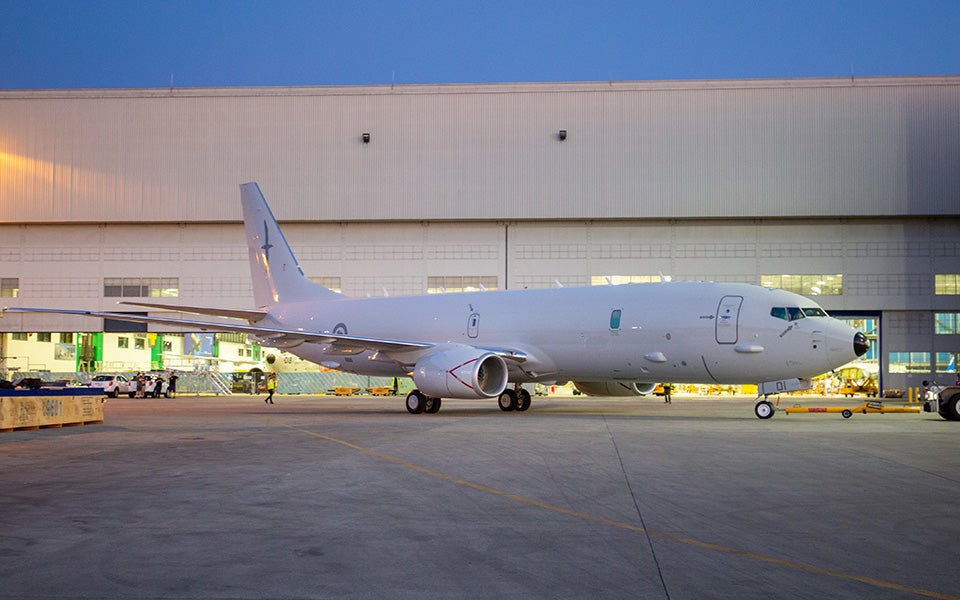
This weekend, Twitter restricted access to some tweets in Turkey on the request of the Turkish government ahead of its next presidential election. Twitter’s compliance silenced accounts that had been critical of the Turkish government, Business Insider reported. It also prompted a wave of criticism directed at Twitter CEO Elon Musk, who seemingly once more abandoned his free speech principles to comply with the Turkish government order.
Musk defended his decision, arguing that “the selection is have Twitter throttled in its entirety or limit access to some tweets.” Some troubled Twitter users suggested that authoritarian governments could see this response as a signal that Twitter will help them silence opponents any time that they threaten to ban the platform regionally. Others felt that Twitter might have been more transparent about Turkey’s request.
An official Twitter account confirmed that each one account holders impacted by the takedown request were informed and that those users’ tweets could be “available in the remaining of the world.” Musk also claimed that, for transparency reasons, he would post the takedown notice that Twitter received from Turkey, but that seemingly never happened.
Amongst Musk’s critics was Wikipedia co-founder Jimmy Wales, who tweeted that Musk could have defended free speech in Turkey, as Wikipedia did after Turkey banned Wikipedia from 2017 to 2020. Relatively than bend to a Turkish government request to remove an article on state-sponsored terrorism, Wikipedia fought Turkey within the country’s highest court until the ban was lifted, Insider reported.
One Twitter user identified that Twitter’s status as a for-profit company differs from Wikipedia’s status as a nonprofit, but that only made Wales query Musk’s decisions more.
“If Elon is now saying, ‘We do not care about freedom of expression if it interferes with making a living,’ then he should just say that,” Wales tweeted.
Twitter and Wikipedia didn’t reply to Ars’ request for comment. Wikipedia reports that Wales’ role is “continually changing,” but “his direct involvement within the running of the location has decreased considerably.”
Musk’s goal was seemingly to maintain Twitter energetic in Turkey before the election. An Indiana University Bloomington researcher focused on social media manipulation, Tuğrulcan Elmas, told Insider that Twitter restricting access to a handful of accounts that the Turkish government dislikes likely would not endanger the election. Elmas argued that those users could still use other platforms to spread their messaging or leverage VPN tools to skirt the Twitter restrictions.
Vanity Fair reported that an investigative journalist censored by Twitter this weekend, Cevheri Güven, told the Turkish Minute, “It’s a disgrace to democracy and freedom of expression that Twitter has caved to” Turkey president Recep Tayyip Erdoğan.
Earlier this yr, Remainder of World reported that Twitter was complying with more government takedown requests under Musk than ever—finding that Musk had not refused a single request and had fully complied 80 percent of the time. A few of these requests asked Twitter to remove controversial posts, while others asked for personal user data to try to discover anonymous users. Within the yr before Musk’s tenure as CEO, Twitter seemingly had a rather stronger backbone, rejecting eight requests.
Musk, particularly, has a relationship with Erdoğan, whom The Atlantic described as making Turkey authoritarian again. The pair met in 2017, The Washington Post reported, and SpaceX signed a cope with Turkey in 2021. The following yr on the World Cup, Musk and Erdoğan shook hands, the Post reported. Just last month, Insider reported, SpaceX assisted Turkey in a satellite launch, and critics consider that Musk’s dealings with Erdoğan could have prompted Twitter’s easy compliance with essentially the most recent takedown request, seemingly intended to silence Erdoğan’s detractors ahead of his re-election bid.
US Representative Adam Schiff (D-Calif.) tweeted his disapproval of the censorship in Turkey.
“The day before a critical election in Turkey, Twitter appears to be acquiescing to the demands of the country’s autocratic ruler, Erdogan, and is censoring speech on the platform,” Schiff tweeted. “Given Twitter’s total lack of transparency, it is tough to avoid the conclusion that Musk’s guarantees of free speech have again fallen away.”







